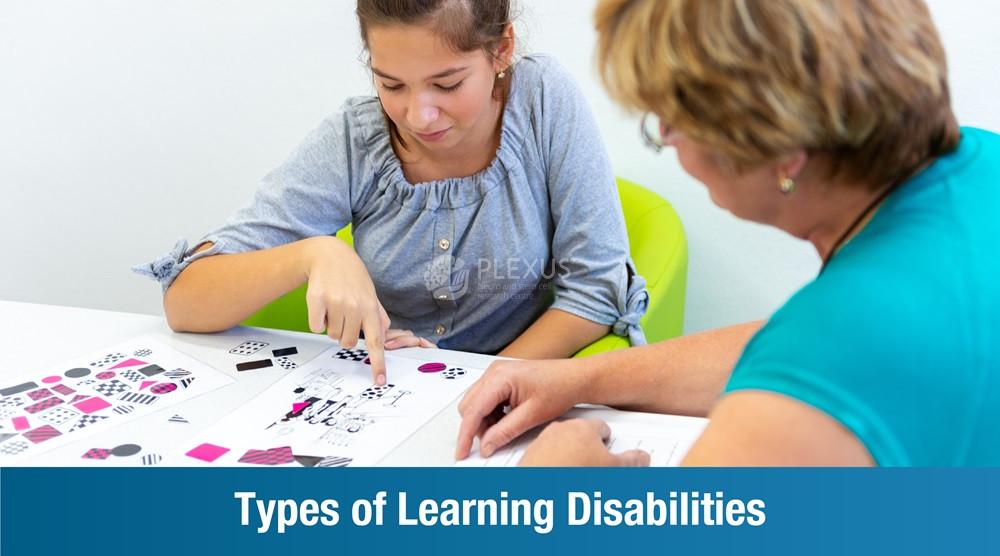
Understanding Learning Disabilities: Types, Symptoms, and Support
Learning disabilities affect how the brain processes information. This makes reading, writing, math, and communication challenging. These difficulties can impact academic performance and everyday tasks.
Why Early Identification Matters
Recognizing learning disabilities early helps in providing effective interventions. Individualized education programs (IEPs), specialized tutoring, and assistive technologies can improve learning outcomes. This blog explores different types of learning disabilities, their symptoms, and ways to manage them.
Types of Specific Learning Disabilities
What Are Specific Learning Disabilities (SLDs)?
SLDs are neurological disorders that impact the ability to acquire, process, or express information. These conditions affect learning differently in each individual.
According to the Individuals with Disabilities Education Act (IDEA), a specific learning disability (SLD) is a disorder that affects how the brain processes language. It can impact a person’s ability to listen, think, speak, read, write, spell, or perform mathematical calculations.
Common Types of Learning Disabilities
Dyslexia (Reading Difficulty)
- Struggles with reading fluency, decoding words, and comprehension.
- May find spelling and writing difficult.
- Slow reading speed and trouble recognizing common words.
Dyscalculia (Math Difficulty)
- Trouble understanding numbers and solving math problems.
- Struggles with basic arithmetic and time management.
- Poor number sense and difficulty recognizing patterns.
Dysgraphia (Writing Difficulty)
- Poor handwriting and trouble organizing thoughts on paper.
- Inconsistent spacing between letters and words.
- Frequent spelling and grammar errors.
Auditory Processing Disorder (APD)
- Difficulty understanding spoken language, especially in noisy environments.
- Struggles to follow verbal instructions.
- Hard time distinguishing between similar sounds.
Visual Processing Disorder (VPD)
- Trouble interpreting visual information like maps and patterns.
- Poor hand-eye coordination.
- Difficulty remembering visual details.
Nonverbal Learning Disabilities (NVLD)
- Challenges with social skills, interpreting body language, and facial expressions.
- Struggles with motor coordination and spatial awareness.
- Difficulty understanding abstract concepts.
How Learning Disabilities Are Managed
At Plexus, we offer personalized interventions to help individuals overcome learning challenges:
- Special Education: Customized teaching strategies tailored to specific learning needs.
- Behavioral Therapy: Improves social skills and addresses behavioral concerns.
- Speech and Language Therapy: Enhances communication skills.
- Assistive Technology: Tools like audiobooks and speech-to-text software to support learning.
Breaking the Stigma
A learning disability is not a limitation—it’s just a different way of learning. With the right support, individuals with learning disabilities can excel in all aspects of life.
Get Support at Plexus
Reach out to our centers in Bangalore and Hyderabad to learn more about our treatments for learning disabilities.
WhatsApp +91 89048 42087
Call +91 78159 64668 (Hyderabad) | +91 82299 99888 (Bangalore)
FAQs
What are the different types of learning disabilities?
The most common types include:
- Dyslexia: Reading challenges.
- Dyscalculia: Math difficulties.
- Dysgraphia: Writing struggles.
- Auditory Processing Disorder: Trouble understanding spoken words.
- Visual Processing Disorder: Difficulty interpreting visual cues.
What are the most common learning disabilities in children?
- ADHD: Affects attention, impulsivity, and focus.
- Autism Spectrum Disorder (ASD): Impacts social interaction and communication.
- Speech and Language Disorders: Affects speech clarity and understanding.
- Intellectual Disabilities: Impacts cognitive functioning and daily living skills.
Which therapy is most effective for learning disabilities?
The best therapy depends on the specific learning disability. Some effective approaches include:
- IEPs and Special Education: Personalized instruction.
- Speech and Language Therapy: Improves communication challenges.
- Behavioral Therapy: Supports social and emotional development.
- Occupational Therapy: Enhances motor skills.
What causes learning disabilities?
Several factors contribute to learning disabilities, including:
- Genetics: Family history of learning challenges.
- Brain Development: Neurological differences in information processing.
- Prenatal and Perinatal Factors: Exposure to toxins, malnutrition, or birth complications.
- Environmental Influences: Lack of early language exposure or ineffective teaching methods.
Recognizing these factors early allows for targeted interventions to support better learning outcomes.
If you need expert guidance, contact Plexus today!










